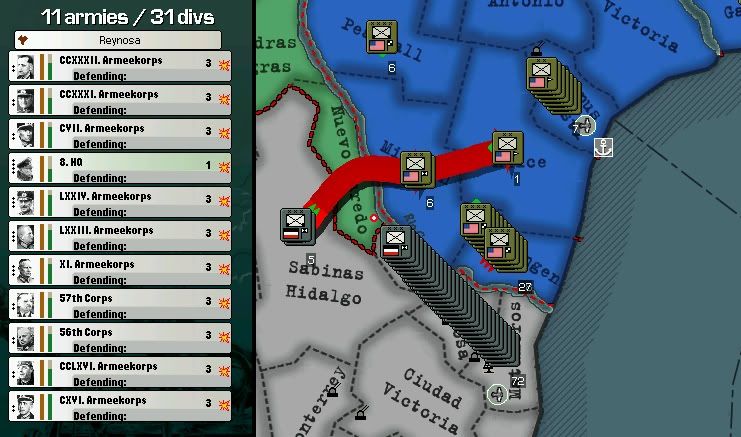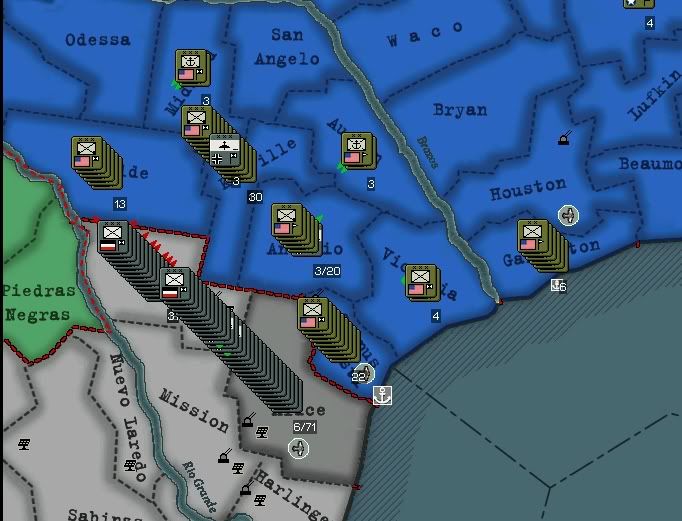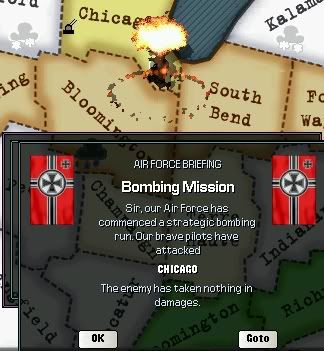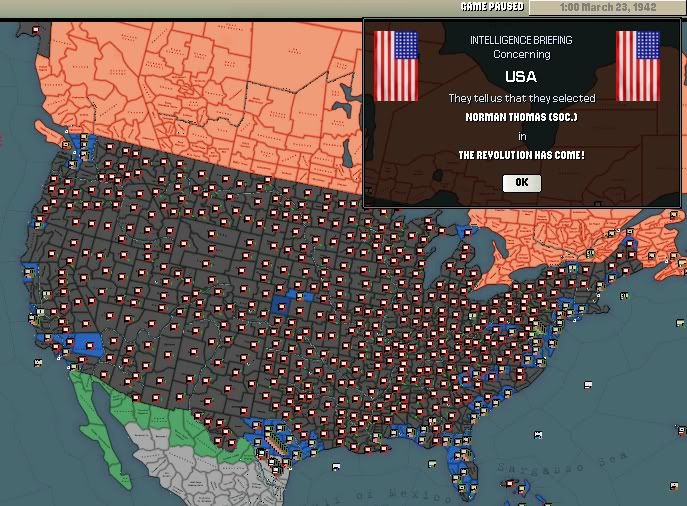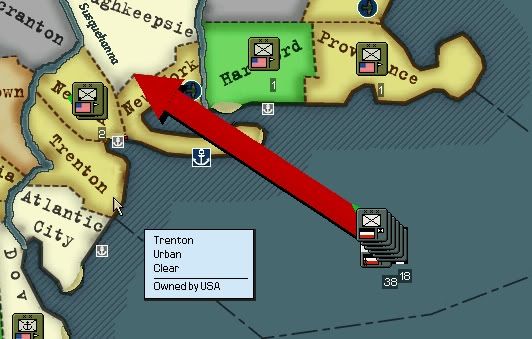Nuclear Giants
“Ours is a world of nuclear giants and ethical infants. If we continue to develop our technology without wisdom or prudence, our servant may prove to be our executioner.”
-General Omar Bradley
May 14, 1942
Southern Texas, USA
The battle cry that rose among the defending American line was “Remember the Alamo”. It had fallen just scant days before. Still, the army had pulled back into strong, if hasty, defensive lines and let the blade of the
Wehrmacht become dulled upon the fortress of bodies. It was like the First World War all over again. Blazing machine guns, heavy artillery, panzers, and airplanes all dueled for command of the field. The dead were the only victors for they would not have to fight another day. The American army had done what no other force to date could do, they had suffered massive casualties to do so, but the
Wehrmacht had been stopped north of the Rio Grande.
As the German war machine ground to a halt and commanders prepared for another round of assaults on their entrenched opponents, orders were received from OKW telling the army to stand down from offensive operations for a period of no less than 72 hours to rest and refit. Only a few of the commanders in America knew of the atomic weapons Germany possessed. The victory the Americans had won, had already cost them dearly and would shortly now cost them more than anyone could imagine.
That same day…
Outside Dresden, Greater Germany
“It is ready?” Beck asks the scientists at the airfield.
“
Ja. Do you know what I made Hitler promise when I designed the first of these weapons Field Marshall Beck?” Otto Hahn asks quietly.
“Yes,” Beck answers quietly and solemnly. “To end wars, not start them. Carnaris told me.
“Then you know my position in this. I know you have selected military-industrial targets, ones I cannot disagree with, not after they declared war on us in the fashion they did. Some part of me had hoped that I would not have to see my work used in my own lifetime. I truly do not know what we are unleashing upon the world this day.”
“Agreed, but without their use there will be no possibility of a lasting peace. It may be another 20 years before the next war, but it will be a false peace. Our brave men, and theirs as well, are dying in the blood drenched sands of Texas these weapons ultimately will save lives now and make the cost of waging war later simply too high to bear later.”
They walk back to the airfield bunkers.
“You have your targets. You may fire when ready.” Beck says quietly staring at the A-16 rockets sitting in their silos with their deadly cargos.
"Ballistic Missile Launch Detected."
March 15, 1942
North America
Washington DC stood as an almost deserted city, with the President and his cabinet retreating from the city citing the possibility of amphibious assaults by German forces they had moved well inland, as had the majority of the citizens. The city had been burned once before by the British in the War of 1812. That was nothing compared to the devastation that was about to be wrought upon the semi-deserted city once again. The weapon arrived three hours after sunset creating for a few short moments a second sun in the skies above DC utterly destroying buildings for kilometers around the site of the airburst. But that was not the end of it for Washington, with the city practically deserted already the fire brigade was woefully underequipped to deal with the fires of this magnitude and the city turned into a massive bonfire drawing in air from the surrounding region. Residents of the surrounding region could easily see the pyre that was the capitol.
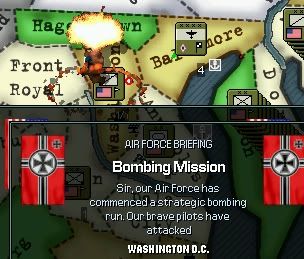
Chicago was not spared this fate either. Once Mrs. O’Leary’s cow had been blamed for burning much of the city, this disaster was one that was made possible only by the use of human ingenuity. Again the weapon arrived after sunset and burst above the city.
Most damaging though to the American cause was not the loss of life, nor was the loss of industry though losses to neither were insignificant. No, the real damage to the American cause was the complete loss of faith in their government. Almost immediately the transport of supplies to military units had staggered to a halt, but less than a week later militias within every county in the continental United States had risen up with their arms against the federal government.
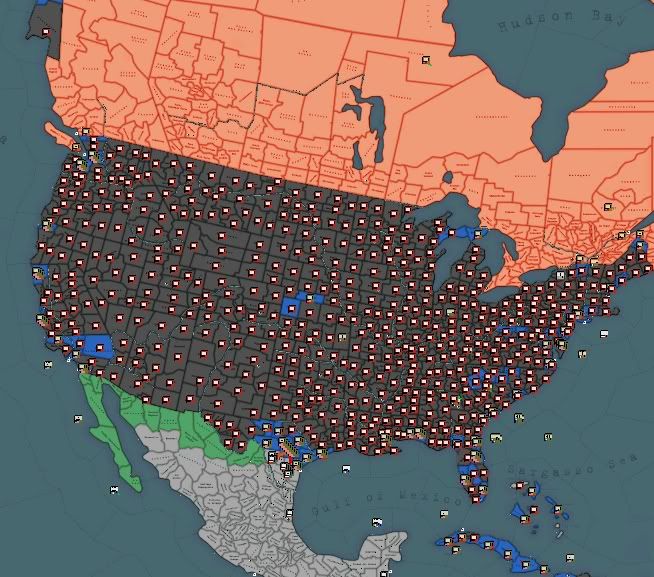
Despite the destruction of the capitol only a bare week before some of the armed militias in the Maryland area marched on the capital demanding the resignation of the cowardly President Willkie who had only just now flown back to re-establish control over the government. With angry, armed protesters in the streets Willkie ordered the Army to gain control of the situation, but they refused here in the capital. Everywhere else the Army was fighting well against these civilian militias defeating them handily. In the capital, they turned their guns away from the protesters and towards the hastily erected tents serving as temporary buildings for the government.
On March 23, 1942 Wendell Willkie was forced out of office to be replaced by the socialist Norman Thomas and the
Wehrmacht resumed its attack northward.


